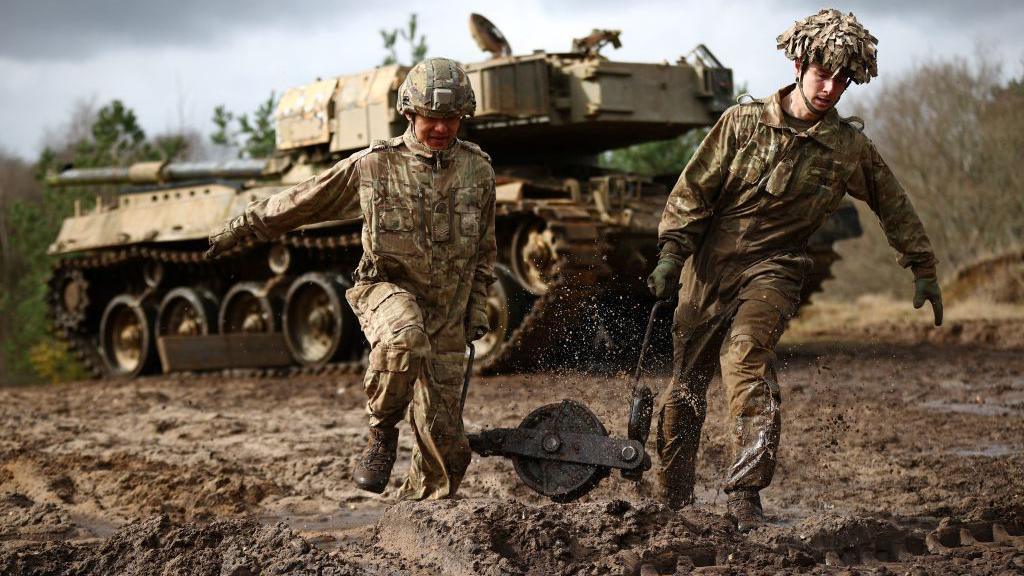PM agrees with Army chief's warning of 'volatile' world

- Published
Sir Keir Starmer "completely agrees" with the thrust of a warning from the new head of the Army that Britain must be prepared for an "increasingly volatile" world, Downing Street has said.
In his first speech in the role on Tuesday, Gen Sir Roland Walker said the country must be ready to fight a war in three years.
The prime minister's official spokesman said Sir Keir himself had talked about "a new and dangerous era", with threats from countries like Russia, North Korea and Iran.
It comes as the UK has signed a new defence agreement with Germany.
- Published23 July
- Published10 July
- Published24 July
Asked whether Sir Keir agreed with Gen Walker's comments, the PM's spokesman said he had spoken about the new era being "defined by volatility and insecurity".
"That is exactly why the government's first and foremost committed to national security," he added.
The government has launched a review of the current state of the UK armed forces, the threats the country faces and the capabilities needed to address them.
Asked whether, if the country needed to be ready for war in three years, it was right to spend time on a review, the PM's spokesman said: "The prime minister completely agrees with the thrust of the head of the Army.
"He has talked previously about the new and dangerous era we live in and that is why we have launched the strategic defence review to assess those dangers, to assess those challenges, and ensure that we have got the capabilities we need to respond to those challenges as and when they arise."
In his speech at the Royal United Services Institute land warfare conference, Gen Walker, who took over as chief of the general staff last month, said war was not inevitable and the Army had "just enough time" to prepare itself to avoid conflict.
He said he aimed to double the Army's fighting power in three years and triple it by the end of the decade.
He vowed to increase the "lethality" of his force through modernisation and new technology, without the need for greater troop numbers.
The size of the UK's regular Army, excluding volunteers, has been falling in recent years.
Labour has said it is committed to increasing spending on defence to 2.5% of national income when economic conditions allow, with the defence review setting out a "roadmap" for doing this.
However, the Conservatives have criticised the government for not matching its election pledge to reach 2.5% by 2030.
Defence Secretary John Healey signed a new defence agreement with his German counterpart in Berlin
It comes as Defence Secretary John Healey makes his first visit to Germany to sign a new defence declaration with the country.
He is also visiting France, Poland and Estonia this week, in what the government has described as a "reset of relationships" with the UK's European neighbours.
In the agreement, the UK and Germany have pledged to work more closely together to strengthen their defence industries, reinforce European security and support Ukraine.
Germany is the second biggest donor of military aid to Ukraine after the US, with the UK the third biggest donor.